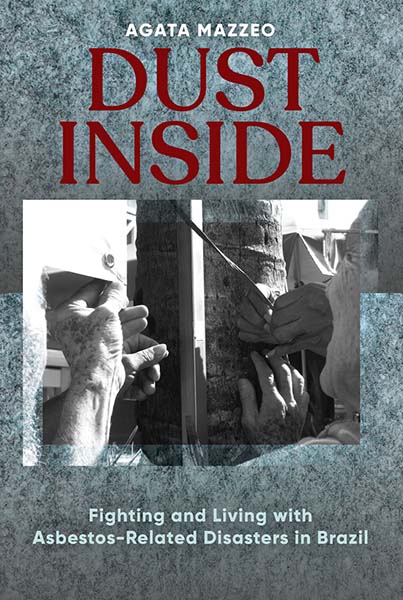“This is a must-read book that adds to the field of the study of bodies, memory, activism, and care.” • Anthropology Book Forum
“The book provides interesting inputs for researchers in the health sciences and reaffirms the heuristic value of Social Sciences in health. With her anthropological “magni-lens”, Mazzeo expands the view of the work-related health-disease process and forces us to clearly see the “mongrel dog syndrome” cultivated by the ethnocentrism of the Brazilian elites. A work destined to become an academic reference in the two hemispheres…an unmissable reading.” • Revista Brasileira de Saude Ocupacional
“It is a good scholarly review of the situation regarding the use of asbestos at a major facility in Brazil with a fine ethnographic review.” • Arthur L. Frank, Drexel University
“This book well exemplifies the value and the utility of anthropology in illuminating a community’s struggle with contaminants, the embodiment of suffering, and the search for environmental justice.” • Stuart Blume, University of Amsterdam
Toxic production, disrupted lives and contaminated bodies. Care for unacknowledged suffering, incurable cancers, and immeasurable losses. This book bears witness to the invisible disasters provoked by the asbestos market worldwide and gives a voice to the communities of survivors who struggle daily in the name of social and environmental justice. Grounded in a profound, touching ethnography, this book offers an original contribution to understanding global health disasters and grassroots health-based activism.
Agata Mazzeo is Adjunct Professor of History of Anthropology at the University of Bologna. She has been published in international journals and she has co-authored articles on the asbestos market.
LC: HD9585.A66 B74 2021
BISAC: SOC002010 SOCIAL SCIENCE/Anthropology/Cultural & Social; SOC057000 SOCIAL SCIENCE/Disease & Health Issues; MED096000 MEDICAL/Toxicology


